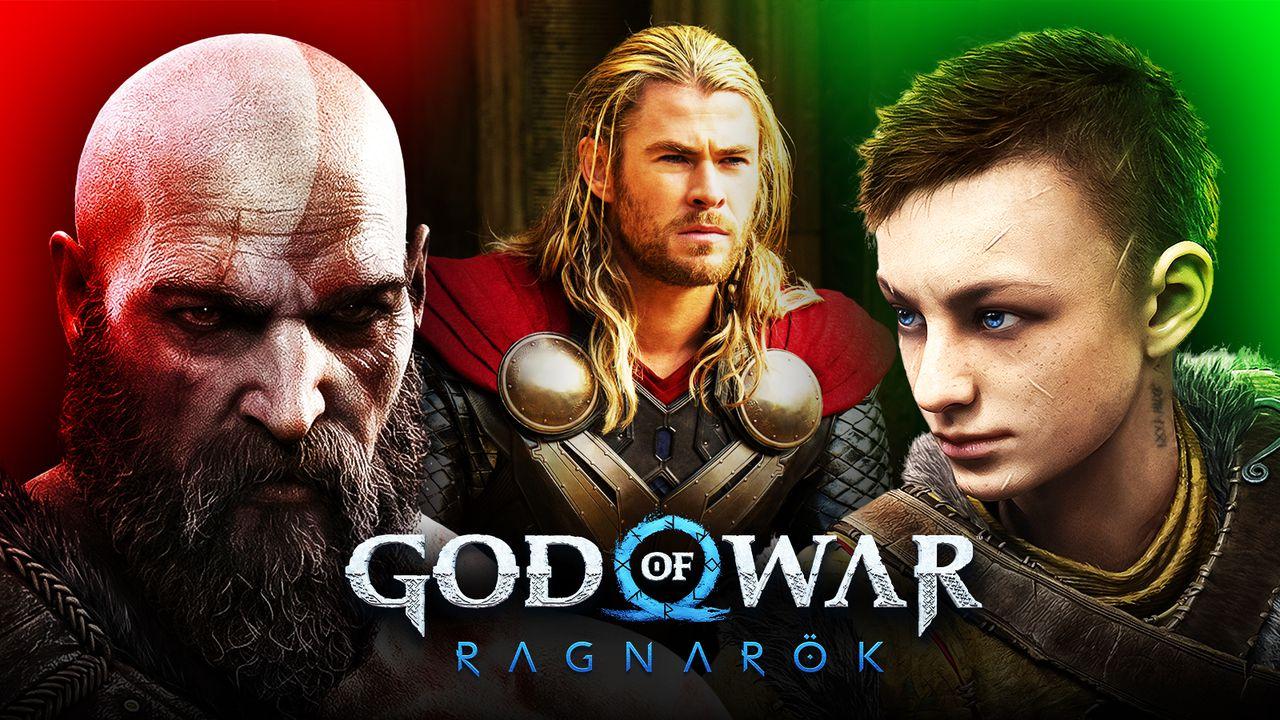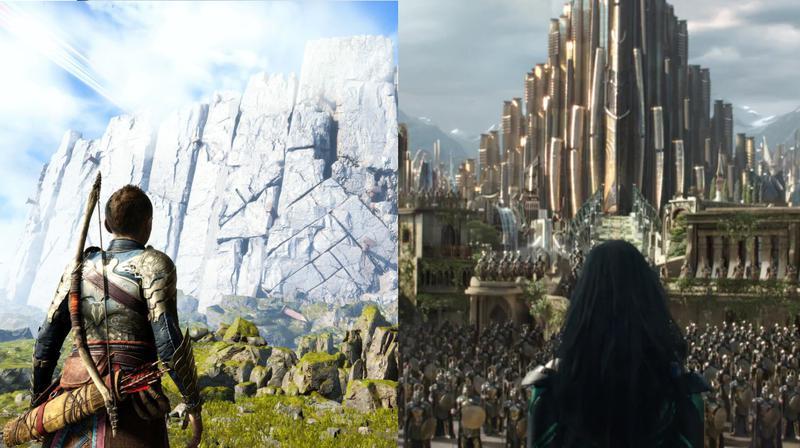
God of War: Ragnarok is finally here, and with it comes a new glimpse into Sony Santa Monica’s vision of Norse Mythology, which differs greatly in comparison to MCU adventures of characters like Thor and Loki.
The sprawling PS5 epic features plenty of familiar faces for fans of Marvel Studios’ Asgardian epics, with unique takes on a number of characters from across the Norse mythos.
The title has garnered near universal acclaim, for its adaptation of Norse myth and take on the world-ending story of Ragnarok (something Marvel Studios tackled in the Thor film sporting that same name).
So, with God of War: Ragnarok out in the wild here is a comparison of how Loki, Thor, and the game’s other Nordic mainstays differ from their Marvel Studios counterparts.
Warning - The rest of this article contains spoilers for God of War: Ragnarok.
Loki

The God of War character that is the most different from the MCU take on the character has to be Loki (aka Atreus). Loki in this digital universe diverges significantly from the Norse source material, being the son of the Greek god Kratos and his giant wife Laufey the Just instead of the adopted son of Odin and brother of Thor.
Compared to Tom Hiddleston’s big (and small) screen take on the character, God of War’s Loki is almost unrecognizable. Of course, Sony Santa Monica's version of the God of Mischief is much more heroic and noble, having been taught by his father Kratos. This is completely different from Marvel’s Loki, who is seen as a villain or an anti-hero most of the time.
Thor

Ragnarok’s version of Thor is one that might be a little jarring for fans of the MCU character. The God of Thunder is portrayed as a vengeful drunk, who - at times - is nothing more than hired muscle for his father Odin.
God of War takes Thor and puts him on the villain’s side, with a look that is reminiscent of a fat Thor from Avengers: Endgame, if he never got back into shape for Thor: Love and Thunder. While Chris Hemsworth’s Thor is a specimen, coming off as the thing all humans should aspire to, at least physically, God of War’s interpretation of the character is a behemoth of a man (akin to Fat Thor), being as much of a battering ram as a thunder-wielding god.
Odin

Odin serves as God of War: Ragnarok’s main antagonist, which will be a little different for fans of the MCU Thor films. On the big screen, Anthony Hpokins’ Odin is seen as a fatherly figure to Thor and Loki, serving as a moral compass for the pair. In the MCU there is seemingly not a devious or conniving bone in Odins’ body, which is totally not the case in Ragnarok.
In the God of War sequel, Odin is oh-so-very evil. He almost presents characteristics akin to the MCU’s take on Loki. He is paranoid, back-stabbing, and willing to do anything to bring about Ragnarok (aka the end of days).
Freya/Frigga

After appearing in both God of War (2018) and Ragnarok, it has become quite evident that this is a notably different Freya (or Frigga) from the MCU. Seen in the Thor films as a soft-spoken bit strong matriarch, Freya in the God of War universe is given a whole lot more to do.
PlayStation’s Freya is a vengeful witch who, after splitting from her husband Odin, is banished to live out her days in the deep forests of Midgard. This is wholly unique compared to Marvel Studios’ version of the Asgardian whose regal and giving nature gives her a similar councilor role to that of the silver screen’s Odin.
Sif

In God of War, it is almost as if Freya and Sif swapped personas when compared to the MCU. Sif takes on that matriarchal role that Freya occupies in the comics and in the films.
While the MCU’s Sif (played by Jamie Alexander) is a fierce warrior, God of War’s take on the character is much more motherly, being a wife to Thor rather than a friend on the battlefield, and staying in Asgard to take care of the children the pair have together.
Heimdall

Similarly to Thor and Odin, Ragnarok gives Heimdall a villainous slant. Instead of the stoic, Bifrost-wielding portrayal done by Idris Elba in the Marvel films, this Heimdall is quite dastardly with no Bifrost to be seen.
He is cocky, always looking for a fight, and - to be frank - quite a dick. In both mediums, Heimdall is Odin’s eyes and ears of the realm, but God of War takes this sentiment in a much more sinister direction.
Asgard

And to round things out, it’s a little bonus entry: Asgard. Yes, the home of the Norse gods makes an appearance in God of War: Ragnarok and looks totally different from the iconic MCU locale. Ragnarok’s version of the godly city does away with Marvel’s golden and gaudy milieu, replacing it with a fairly normal-looking Nordic Village.
There is no palace here with sprawling golden spires shooting into the air. Instead, the entire domain is made of wood and stone with patches of green grass strewn about, and a monolithic wall protecting it from intruders. It’s a much more grounded vision of Asgard than that seen in the MCU for sure.
A Norse Tale for the Ages
While Ragnarok usually signals the end, this is only just the beginning, a taste of what to expect in God of War Ragnarok.
As Marvel Studios did all those years ago, Sony Santa Monica has presented its take on a familiar mythos in the stories of the Norse. Something that is exciting to see, hear, and experience alongside these heroes and villains.
So trade in that Chris (Hemsworth) for Kratos, and get exploring. God of War: Ragnarok is in store now on PlayStation 4 and 5.